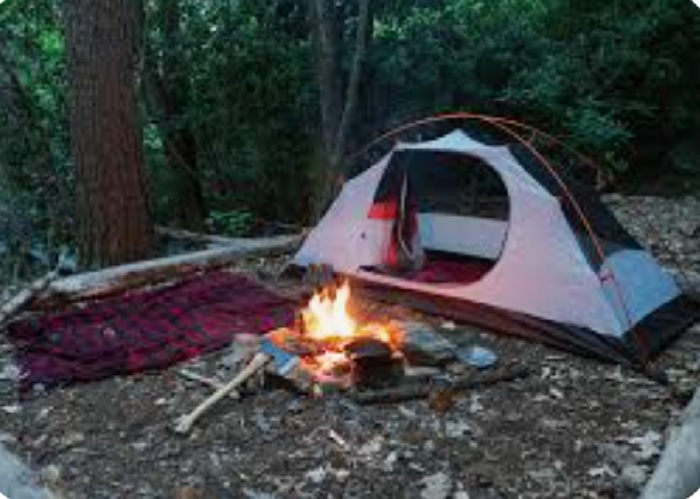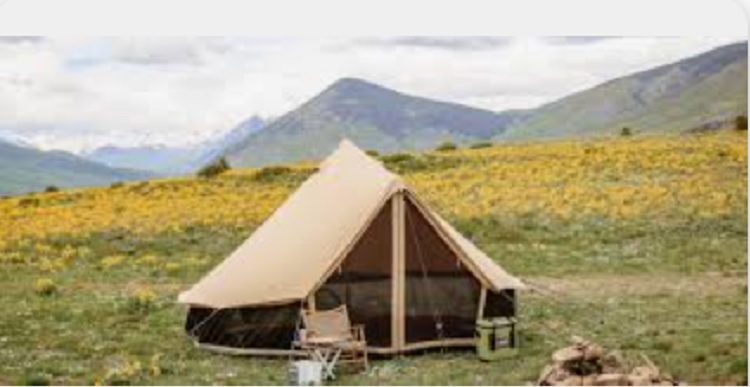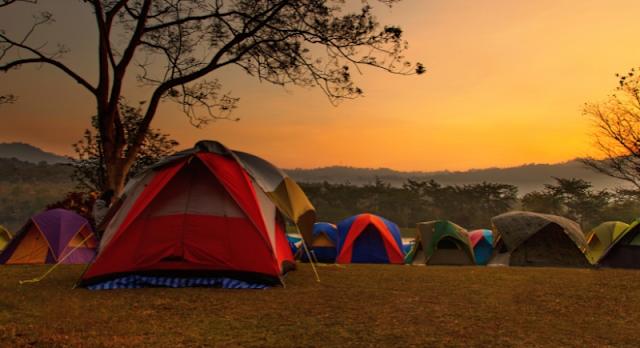Looking for the perfect spot to pitch your tent without spending a dime? You’re in the right place.
Free tent camping lets you connect with nature without worrying about fees or crowded campgrounds. Imagine waking up to fresh air, peaceful surroundings, and plenty of space to spread out—all without breaking the bank. In this guide, you’ll discover the best places where you can camp for free, tips to make your trip smooth, and how to respect the land while enjoying your adventure.
Keep reading to find your next great camping destination!
Benefits Of Free Tent Camping
Free tent camping lets you enjoy the outdoors without paying fees. It is a great way to save money while exploring new places.
This type of camping helps you connect with nature and avoid busy campsites. Many people find it peaceful and refreshing.
Saving Money On Travel
Free tent camping helps you keep your travel costs low. You do not have to pay for a campsite or other fees.
Saving money means you can spend more on food, gear, or other fun activities. It makes camping affordable for everyone.
Connecting With Nature
Camping for free often means staying in natural, quiet areas. You get to see wildlife and beautiful views up close.
This kind of camping helps you feel calm and relaxed. It gives you time to breathe fresh air and enjoy the outdoors fully.
Avoiding Crowded Campsites
Free tent camping spots are often less crowded than paid ones. You can find peaceful places where few people go.
Less noise and fewer people mean a better camping experience. You can enjoy quiet nights and clear starry skies.

Credit: wanderwithkt.com
How To Find Secret Camping Spots
Finding free tent camping spots can be exciting. It lets you enjoy nature without paying fees.
Secret camping spots are often quiet and less crowded. You can find them with a little effort.
Using Online Forums And Apps
Online forums have many campers who share hidden spots. You can read their tips and advice.
Apps show free camping areas on maps. Some let users add new locations they find.
- Search for camping forums and groups
- Use apps like iOverlander or FreeRoam
- Read recent reviews before visiting
- Respect the rules shared by users
Exploring Public Lands
Public lands often allow free camping in certain areas. These spots are away from busy campgrounds.
Look for national forests, BLM lands, or state-owned parks. These places have many quiet spots.
- Check maps for public land boundaries
- Follow camping rules for each area
- Camp at least 200 feet from water sources
- Pack out all your trash and waste
Asking Local Experts
Local experts know the best hidden camping places. Rangers, shop owners, and hikers can help.
Talk to people in small towns near your camping area. They often share useful advice and secrets.
- Visit visitor centers and ask rangers
- Talk to outdoor store employees
- Join local hiking or camping groups
- Be polite and respectful when asking
Top Secret Free Camping Locations
Finding free places to tent camp can be fun and rewarding. Some spots stay quiet and less known.
These hidden locations offer nature’s beauty without the cost. They are perfect for peaceful camping.
Hidden Forest Clearings
Forest clearings can be great spots for free camping. These open spaces give sunlight and fresh air.
Look for areas inside large forests where trees open up. These spots are quiet and private.
- Bring a map or GPS to find clearings
- Check the ground for flat and dry spots
- Watch for wildlife and keep food sealed
- Leave no trace to protect the forest
Remote Mountain Sites
Mountains offer many free camping spots away from crowds. They give fresh air and great views.
Find places near trails or small ridges. Make sure the spot is safe from falling rocks or strong winds.
- Choose a flat area for your tent
- Carry enough water or a filter
- Prepare for colder temperatures at night
- Inform someone of your location
Secluded Lakeside Areas
Lakesides can be peaceful places to camp for free. Water nearby helps with cooking and cleaning.
Pick spots hidden by trees or bushes. Avoid crowded beaches and respect the wildlife.
- Set up your tent at least 200 feet from water
- Use a camp stove instead of open fires
- Keep the area clean to protect the lake
- Enjoy fishing or quiet time by the water

Credit: caamagazine.com
Essential Gear For Free Camping
Free camping means staying in places without fees or facilities. You must bring all the gear you need. Choosing the right gear makes your trip safe and fun.
Carry light items that are easy to pack. Think about shelter, cooking, and safety tools. These basics help you enjoy nature without problems.
Lightweight Tent Options
Pick a tent that is light and easy to carry. Small tents save space and weight in your backpack. Look for tents with quick setup features.
A good tent keeps you dry and safe from bugs. Choose one with strong fabric and a rainfly. Ventilation helps reduce moisture inside.
- Ultralight backpacking tents
- Single-wall tents for less weight
- Pop-up tents for fast setup
- Compact tent poles made from aluminum
Portable Cooking Equipment
Bring a small stove that works well outdoors. A lightweight stove saves fuel and packs easily. Choose models that use gas or solid fuel tablets.
Cookware should be small and durable. Look for pots and pans made from titanium or aluminum. A compact set helps keep your pack light.
- Compact camping stove with fuel canister
- Lightweight pot and pan set
- Collapsible or nesting bowls and cups
- Reusable utensils made from metal or bamboo
Safety And Navigation Tools
Carry tools that help you stay safe in the wild. A reliable map and compass guide you if you lose the trail. Learn to use them before your trip.
Bring a first aid kit with basic supplies. A flashlight or headlamp helps you see at night. Pack extra batteries or a solar charger.
- Topographic map and compass
- Basic first aid kit with bandages and antiseptics
- Bright flashlight or headlamp
- Whistle for emergencies
- Multi-tool or knife
Campground Etiquette And Leave No Trace
Camping for free is a great way to enjoy nature without spending much money. It is important to follow rules that keep the land clean and safe.
Leave No Trace means you should leave nature as you found it. Campground etiquette helps everyone have a good experience.
Respecting Wildlife And Plants
Do not feed or touch wild animals. Feeding can harm their health and change their behavior. Keep a safe distance from all wildlife.
Avoid picking plants or breaking branches. Plants are homes and food for animals. Stay on marked trails to protect the environment.
Disposing Of Waste Properly
Carry out all trash, including food scraps. Use restroom facilities when available. If not, bury human waste at least 6 inches deep and 200 feet from water.
- Pack out all garbage and leftover food
- Use biodegradable soap away from water sources
- Dispose of toilet paper by packing it out or burying it
Minimizing Noise And Impact
Keep noise low to avoid disturbing others and wildlife. Use quiet voices and limit loud music. Respect quiet hours at campgrounds.
Camp only in designated areas or on durable surfaces. Avoid creating new fire rings or clearing vegetation. Use a camp stove instead of open fires when possible.
Legal Tips For Free Camping
Camping for free can be a fun way to enjoy nature. You must follow laws to avoid trouble.
Knowing legal tips helps you camp safely and without fines. Always check rules before you go.
Understanding Local Regulations
Each area has rules about camping. Some places allow free camping, others do not.
Check local government websites or visitor centers. They give clear rules about camping in the area.
- Find out if camping is allowed at your spot
- Learn the length of time you can camp
- Know which areas are protected or off limits
Permits And Restrictions
Some free camping spots need permits. Permits control how many people camp and protect nature.
Permits can be free or low cost. Always get a permit if rules say so to avoid fines.
- Ask if a permit is needed before camping
- Apply for permits early to secure your spot
- Follow all permit rules and limits
Avoiding Common Fines
Fines often happen when campers break simple rules. Follow rules to keep your trip trouble-free.
Common fines come from illegal fires, trash, and camping in banned areas. Respect nature to avoid fines.
- Use designated fire pits only
- Pack out all trash and leave no trace
- Do not camp near water sources or private property
- Keep noise low to respect other campers

Credit: www.quebecvacances.com
Frequently Asked Questions
Where Can I Find Free Tent Camping Spots?
You can find free tent camping spots in national forests, Bureau of Land Management (BLM) lands, and some state parks. These areas often allow dispersed camping without fees. Always check local regulations and obtain necessary permits. Online resources and apps like FreeRoam and Campendium can help you locate free camping sites.
Are There Any Restrictions On Free Camping?
Yes, free camping often comes with restrictions. Many areas limit the number of nights you can stay, typically up to 14 days. Campfires may be prohibited, especially during fire season. Always follow Leave No Trace principles and check local regulations for specific rules before setting up camp.
What Amenities Are Available At Free Camping Sites?
Free camping sites typically offer limited amenities. Most sites have no restrooms, running water, or trash disposal facilities. You need to be self-sufficient and pack out all your trash. Some areas may have fire rings or picnic tables, but it’s best to come prepared with all essentials.
How Do I Ensure Safety While Free Camping?
To ensure safety while free camping, choose a visible and accessible spot. Inform someone of your location and expected return. Keep food stored securely to avoid attracting wildlife. Always carry a first-aid kit and emergency supplies. Stay updated on weather conditions and park alerts for a safe experience.
Conclusion
Free tent camping offers a great way to enjoy nature without cost. Many places allow camping on public lands and forests. Always check local rules before setting up your tent. Respect the environment and leave no trace behind. Quiet spots can provide peace and a true outdoor experience.
Pack only what you need and stay safe. Adventure waits for those who seek simple, free camping spots. Start planning your next trip with these ideas in mind. Enjoy the freedom of camping under the stars.

